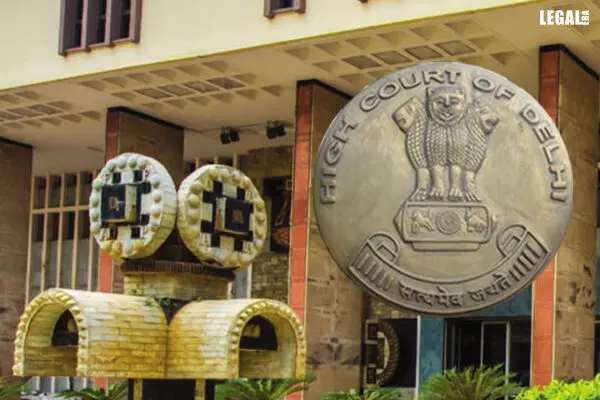- Home
- News
- Articles+
- Aerospace
- Artificial Intelligence
- Agriculture
- Alternate Dispute Resolution
- Arbitration & Mediation
- Banking and Finance
- Bankruptcy
- Book Review
- Bribery & Corruption
- Commercial Litigation
- Competition Law
- Conference Reports
- Consumer Products
- Contract
- Corporate Governance
- Corporate Law
- Covid-19
- Cryptocurrency
- Cybersecurity
- Data Protection
- Defence
- Digital Economy
- E-commerce
- Employment Law
- Energy and Natural Resources
- Entertainment and Sports Law
- Environmental Law
- Environmental, Social, and Governance
- Foreign Direct Investment
- Food and Beverage
- Gaming
- Health Care
- IBC Diaries
- In Focus
- Inclusion & Diversity
- Insurance Law
- Intellectual Property
- International Law
- IP & Tech Era
- Know the Law
- Labour Laws
- Law & Policy and Regulation
- Litigation
- Litigation Funding
- Manufacturing
- Mergers & Acquisitions
- NFTs
- Privacy
- Private Equity
- Project Finance
- Real Estate
- Risk and Compliance
- Student Corner
- Take On Board
- Tax
- Technology Media and Telecom
- Tributes
- Viewpoint
- Zoom In
- Law Firms
- In-House
- Rankings
- E-Magazine
- Legal Era TV
- Events
- Middle East
- Africa
- News
- Articles
- Aerospace
- Artificial Intelligence
- Agriculture
- Alternate Dispute Resolution
- Arbitration & Mediation
- Banking and Finance
- Bankruptcy
- Book Review
- Bribery & Corruption
- Commercial Litigation
- Competition Law
- Conference Reports
- Consumer Products
- Contract
- Corporate Governance
- Corporate Law
- Covid-19
- Cryptocurrency
- Cybersecurity
- Data Protection
- Defence
- Digital Economy
- E-commerce
- Employment Law
- Energy and Natural Resources
- Entertainment and Sports Law
- Environmental Law
- Environmental, Social, and Governance
- Foreign Direct Investment
- Food and Beverage
- Gaming
- Health Care
- IBC Diaries
- In Focus
- Inclusion & Diversity
- Insurance Law
- Intellectual Property
- International Law
- IP & Tech Era
- Know the Law
- Labour Laws
- Law & Policy and Regulation
- Litigation
- Litigation Funding
- Manufacturing
- Mergers & Acquisitions
- NFTs
- Privacy
- Private Equity
- Project Finance
- Real Estate
- Risk and Compliance
- Student Corner
- Take On Board
- Tax
- Technology Media and Telecom
- Tributes
- Viewpoint
- Zoom In
- Law Firms
- In-House
- Rankings
- E-Magazine
- Legal Era TV
- Events
- Middle East
- Africa
Delhi High Court Favors Goethe Institut, Bars Indian Entity From Using 'Max Mueller' Mark

Delhi High Court Favors Goethe Institut, Bars Indian Entity From Using 'Max Mueller' Mark
Introduction
The Delhi High Court has granted interim relief to the Goethe Institut, restraining an Indian entity from using the "Max Mueller" name for its German language training services. The court held that the Goethe Institut's prior use and goodwill associated with the mark warranted protection.
Factual Background
The Goethe Institut, a German cultural organization, has been operating in India since 1957 through centers named "Max Mueller Bhavan." These centers offer German language training and cultural programs. An Indian entity began using the name "Max Mueller Institute" in 2018 for similar services, prompting the Goethe Institut to file a lawsuit alleging trademark infringement and passing off.
Issues Involved
1. Prior Use and Goodwill: Whether the Goethe Institut's prior use and goodwill associated with the "Max Mueller Bhavan" mark entitle it to protection.
2. Dishonest Adoption: Whether the Indian entity's adoption of the "Max Mueller Institute" name constitutes dishonest adoption and potential public confusion.
Submissions of the Parties
Plaintiff's Contentions: The Goethe Institut argued that its long-standing use of the "Max Mueller Bhavan" mark had created significant goodwill and reputation in India. The organization contended that the defendant's use of a similar mark was likely to cause public confusion and dilute its brand.
Defendant's Contentions: The defendant argued that "Max Mueller Bhavan" referred only to a building name and not a trademark. The defendant also claimed that its use of the "Max Mueller Institute" name was legitimate and did not intend to deceive or confuse the public.
Reasoning and Analysis
The court held that the Goethe Institut had established prior use and significant goodwill associated with the "Max Mueller Bhavan" mark. The defendant's adoption of the "Max Mueller Institute" name was deemed dishonest, and the court found potential for public confusion. The court observed that the Goethe Institut's documentation, including PAN cards, bank accounts, and official certificates, established the mark's association with its services.
Final Decision
The Delhi High Court granted interim relief to the Goethe Institut, restraining the Indian entity from using the "Max Mueller" name or any deceptively similar marks for its language education services.
Law Settled
This judgment showcases the principle that prior use and goodwill are essential factors in determining trademark infringement and passing off cases. The court's decision emphasizes the importance of protecting trademarks and preventing unfair competition.
In this case the plaintiff was represented by Mr.Chander M Lall, Senior Advocate, Mr.Karan Bajaj, Ms.Suman Jyoti Khaitan, Mr.Vikas Kumar and Mr.Vihaan Kumar, Advocates. Meanwhile the defendants were represented by Mr.Vikas Khera, Ms.Sneha Sethia and Mr.Yash Sharma, Advocates.



